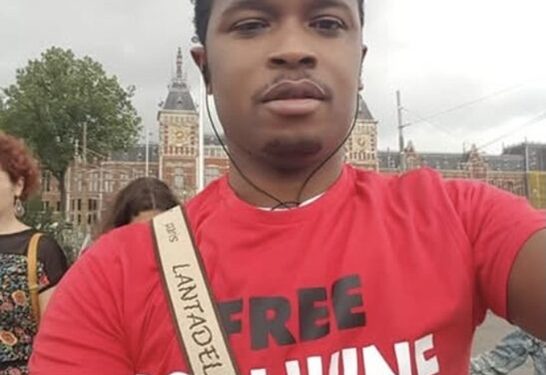By Michael Sesay
In recent years, Sierra Leoneans have witnessed a strange political theatre: while ordinary citizens cry under the weight of economic hardship, unemployment, and collapsing services, the ruling Sierra Leone People’s Party (SLPP) parades international awards and recognition as though they are substitutes for good governance. Foreign applause has become a tool of distraction, carefully polished and showcased to blindfold the people from the daily betrayals they suffer at home.
But the truth is this: no amount of shiny plaques or honorary titles can put food on the table, create jobs for restless youth, or save mothers dying in under-equipped hospitals. Awards are paper; governance is practice. And Sierra Leoneans are beginning to ask—what use are these foreign praises if life at home is unbearable?
The Art of International Applause
The SLPP government has mastered the art of courting international goodwill. From education “success stories” praised abroad to climate change speeches hailed at global forums, the government is skillful at selling a version of Sierra Leone that sounds progressive and visionary.
On paper, the Free Quality Education initiative looks like a triumph—millions of children enrolled in school, with glowing commendations from international agencies. Abroad, it is celebrated as a model for Africa. Yet, in the classrooms of Freetown, Bo, Kenema, and Kambia, the reality is children crammed into overcrowded rooms, without books, desks, or trained teachers. The glittering award does not reflect the painful truth: quantity has trumped quality.
Similarly, speeches about gender empowerment, transparency, and development attract international nods. But at home, corruption scandals are swept under the carpet, accountability is weak, and women in rural areas still lack basic healthcare, land rights, and economic opportunities.
The Local Betrayal
While international partners applaud, ordinary Sierra Leoneans are suffocating under economic mismanagement. Prices of basic commodities—rice, bread, fuel—continue to skyrocket. Salaries remain stagnant. Civil servants complain of being perpetually broke. The middle class, once a small but stabilizing force, is disappearing.
The betrayal lies in the gap between words and deeds. Citizens hear their leaders boast about global praise but see no reflection of that praise in their daily lives. How can Sierra Leone be celebrated for progress when young people risk their lives in the Mediterranean, fleeing a land that has failed them? How can foreign governments and agencies call Sierra Leone a success story when hospitals lack drugs, roads crumble, and unemployment rises?
This betrayal is not only economic—it is psychological. By using foreign validation as a shield, the government insults the intelligence of its people, expecting Sierra Leoneans to clap for things they cannot feel or touch.
Why the Strategy Works—for Now
The SLPP understands something critical: foreign awards and recognition often silence domestic criticism. When international agencies issue glowing reports, it becomes harder for local voices to challenge the narrative without being branded as “unpatriotic” or “negative.”
Moreover, these awards strengthen the government’s global standing, making it easier to secure aid, loans, and donor support. But while foreign recognition may buy political mileage abroad, it does not buy bread at the market. It does not lower the cost of transport, nor does it guarantee a job for the graduate in Makeni or Kenema.
The strategy works for now because citizens, weary and frustrated, sometimes cling to these awards as symbols of hope. But hope without delivery eventually turns into anger.
The Real Cost of Blindfolding the People
The obsession with international applause comes at a dangerous cost. It distracts the government from fixing structural problems. It makes leaders complacent, believing global recognition is enough to silence local suffering. Worse, it erodes trust between the people and their leaders—because when reality and rhetoric diverge too widely, cynicism takes root.
Every award announced with fanfare feels, to struggling citizens, like a mockery of their pain. And every foreign recognition that is not backed by domestic transformation becomes another nail in the coffin of public trust.
What Sierra Leone Really Needs
Sierra Leone does not need more awards. It needs honest leadership that prioritizes the people over international praise. It needs a government that focuses on reducing poverty, creating jobs, fixing hospitals, ensuring reliable electricity, and providing quality—not just free—education.
Sierra Leoneans want a government that earns applause at home first, before chasing validation abroad. Because in the end, the judgment of foreign bodies is temporary—but the judgment of the people is permanent.
Conclusion
Foreign awards may shine on the walls of State House, but they cannot erase the betrayals felt in the streets of Sierra Leone. The SLPP has perfected the art of blindfolding its people with global recognition, but the mask is slipping.
The real question is simple: will Sierra Leoneans continue to clap for international applause while their own stomachs are empty, or will they demand leaders who measure success not in foreign awards, but in local progress?
Until that question is answered, foreign praise will remain a hollow echo against the cries of a betrayed people.













